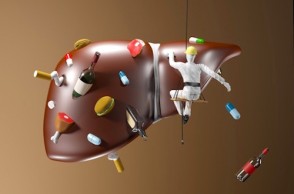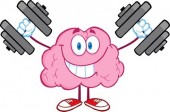Canceled Clients (4762)
Children categories

Train Your Body (438)
The show for fitness buffs or beginners. Expert guest from the American College of Sports Medicine (ACSM) discuss all areas of fitness, nutrition, athletics and sports medicine.
View items...
Staying Well (382)
RadioMD’s “talking” Health A-Z hosted by senior health correspondent, Melanie Cole, MS. Melanie interviews experts in the world of health, wellness, fitness and medicine.
View items...
Healthy Talk w/ Dr. Michael Smith (698)
Integrative physician, Michael A. Smith, MD is committed to providing listeners with the most current health information available.
View items...
Naturally Savvy (899)
Registered Holistic Nutritionist, Andrea Donsky and health expert Lisa Davis discuss their passion for living a natural, healthy lifestyle.
View items...
Eat Right Radio (48)
EatRight Radio, with experts from the Academy of Nutrition and Dietetics, discusses food and nutrition topics, healthy weight, allergies and health conditions, healthy aging, food safety and so much more. Give us 10-minutes and we'll give you the important information and expert advice from registered dietitian nutritionists to help you eat right, feel better, and live a healthier life. Hosted by Melanie Cole, MS.
View items...
Sharecare Radio (235)
Sharecare Radio, hosted by Sharecare’s own Dr. Darria Long Gillespie, SVP of Clinical Strategy at Sharecare, will appear live every Tuesday from 12 to 1 p.m. EST on RadioMD. Dr. Darria will break down the top health news of the week, pull in experts from around the country on a wide array of health topics and answer listeners’ live questions on all things health.
View items...
Wellness for Life (455)
On Wellness For Life Radio you will learn practical, easy-to implement tips to improve your life and start feeling better — the natural way.
View items...
The Wizard of Eyes (163)
Dr. Robert Abel Jr. talks about many of the important and unrecognized parts of our visual system which we so often take for granted. The show covers the usual common ocular disorders with an East/West approach to both prevention and therapy. The eye-brain connection is presented with information about memory retention, Alzheimer's, the myopia epidemic, and many more subjects. Dr. Abel discusses how the eye and vision are connected with remote parts of the body including your gut flora, musculoskeletal system, blood pressure, drugs and lifestyle. practical and simple health tips.
View items...
Code Delicious with Dr. Mike (135)
Code Delicious with Dr. Mike breaks all the rules. Unabashedly confronting the questions, concerns and conundrums that continually confuse both public and experts alike; Dr. Mike takes us on a tasty trip of inquiry.
View items...
CLEAN Food Network (98)
This show is a call to action for all the clean eating revolutionaries that care about their health and how and what they eat. Non-GMO, natural, organic . . . food the way nature intended. The clean food movement is huge and is growing exponentially. This companion program talks to experts in food preparation, healthcare, celebrities, and even those companies that care enough to provide the best, wholesome, organic foods and groceries.
View items...
Talk Healthy Today (213)
Looking to create your best self? Whether it’s good-for-you lifestyle hacks, smarter ways to supplement, or tasty tips to fuel optimal health, Talk Healthy Today brings you the latest research, tools, and common sense tips you need to get and stay healthy... starting today!
View items...
Be a Doer (17)
Be A Doer features master coach and TV personality John Abdo as he shares health and fitness tips aimed at getting you in shape – and keeping you there!
View items...The Power of Probiotics (3)
Probiotics is a major global industry. But like any industry, it had to have a beginning. Natasha Trenev is the daughter of an Eastern European family where the manufacturing of yogurt was a generational business. When Natasha emigrated to the US in the 1960’s, she brought with her 750 years of family experience with probiotics – and introduced the science (and the term itself) to her new country. Today, Natasha’s California-based Natren, Inc. is the recognized pioneer in probiotics and company founder Natasha Trenev has earned recognition as the Mother of Probiotics. Her more than 50 years of work in natural health is at the core of the unparalleled success of her company – and you will benefit from her depth of expertise in each and every episode of THE POWER OF PROBIOTICS.
Probiotics are live microrganisms that are commonly referred to as ‘friendly,’ ‘good’ or ‘healthy’ bacteria that function to help maintain the natural balance of organisms in the intestine. Throughout Natasha’s extensive work in the field of probiotics, she has always been amazed by how nature provides the very ‘good’ bacteria that can help overpower ‘bad’ bacteria to keep our digestive tracts functioning at peak performance. Properly cultivating friendly bacteria and ensuring their potency is at the core of the Natren Process. Natren is cited – by retailers, by the medical community and by consumers – as the best probiotic supplement available. Only Natren carefully chooses its probiotic cultures, formulates and manufactures its industry standard probiotics in its own plant and utilizes a specially-formulated oil matrix to protect probiotics bacteria to survive until they reach their destination in the upper small intestine. This is why only Natren is the most trusted probiotic supplement on the market. Truly, where other probiotic supplements promise – Natren Delivers.
To learn more about how probiotics can benefit your health, we are proud to introduce you to THE POWER OF PROBIOTICS with The Mother of Probiotics, Natasha Trenev.

Your Brain Health (24)
Noted Los Angeles-based neuroscientist and media personality Dr. Kristen Willeumier launches Your Brain Health with Dr. Kristen Willeumier, a podcast series that explores the latest news and information in the burgeoning science of brain health.
View items...Additional Info
- Segment Number 2
- Audio File ER_101/1525er5b.mp3
- Featured Speaker Juan Fitz, MD
- Organization American College of Emergency Physicians
-
Guest Bio
 Dr. Juan Fitz is a staff emergency physician at Covenant Medical Center in Lubbock, Texas. He is also on the clinical faculty at Texas tech Health Sciences Center. Dr. Fitz is a longtime member of the American College of Emergency Physicians and serves as a national spokesperson for ACEP.
Dr. Juan Fitz is a staff emergency physician at Covenant Medical Center in Lubbock, Texas. He is also on the clinical faculty at Texas tech Health Sciences Center. Dr. Fitz is a longtime member of the American College of Emergency Physicians and serves as a national spokesperson for ACEP.
- Length (mins) 10
- Waiver Received No
- Host Leigh Vinocur, MD
Additional Info
- Segment Number 1
- Audio File ER_101/1525er5a.mp3
- Featured Speaker Michelle Lai, MD, MPH
- Organization Ulyssess Press
- Book Title The Liver Healing Diet
-
Guest Bio
 Michelle Lai, MD, MPH, is a hepatologist at Beth Israel Deaconess Medical Center, one of the top liver health centers in the country, and an assistant professor in medicine at Harvard Medical School.
Michelle Lai, MD, MPH, is a hepatologist at Beth Israel Deaconess Medical Center, one of the top liver health centers in the country, and an assistant professor in medicine at Harvard Medical School.
She takes care of patients with liver diseases and is working on clinical research in non-alcoholic fatty liver disease. She earned a bachelor of arts degree in biology from Harvard University, and a medical degree and a master's degree in public health from Columbia University. She completed her internal medicine, gastroenterology, and transplant hepatology training at Beth Israel Deaconess Medical Center. - Length (mins) 10
- Waiver Received No
- Host Leigh Vinocur, MD
Additional Info
- Segment Number 4
- Audio File health_radio/1525ml4d.mp3
- Featured Speaker Clark Elliott, PhD
- Organization Clark Elliott
- Book Title The Ghost in My Brain: How a Concussion Stole My Life and How the New Science of Brain Plasticity Helped Me Get it Back
-
Guest Bio
 Clark Elliott, PhD, has been a professor of Artificial Intelligence at DePaul University for twenty-seven years. He holds three teaching certificates for music, the B.M., M.M. (music), and M.S. (computer science) degrees, and a Ph.D. from Northwestern University's Institute for the Learning Sciences with an emphasis on computer simulations of human emotion.
Clark Elliott, PhD, has been a professor of Artificial Intelligence at DePaul University for twenty-seven years. He holds three teaching certificates for music, the B.M., M.M. (music), and M.S. (computer science) degrees, and a Ph.D. from Northwestern University's Institute for the Learning Sciences with an emphasis on computer simulations of human emotion.
He lives with his wife and daughter in Evanston, Illinois. He has raised four other children, studies Tai Chi and music every day, and continues as a casual marathon runner. - Length (mins) 10
- Waiver Received No
- Host Melanie Cole, MS
Additional Info
- Segment Number 3
- Audio File health_radio/1525ml4c.mp3
- Featured Speaker Gary Small, MD
- Organization Newsmax
-
Guest Bio
 Dr. Gary Small, M.D., is a professor of psychiatry and aging and director of the UCLA Longevity Center at the Semel Institute for Neuroscience and Human Behavior. Dr. Small, one the nations top brain health experts, frequently appears on The Today Show, Good Morning America, and The Dr. Oz Show.
Dr. Gary Small, M.D., is a professor of psychiatry and aging and director of the UCLA Longevity Center at the Semel Institute for Neuroscience and Human Behavior. Dr. Small, one the nations top brain health experts, frequently appears on The Today Show, Good Morning America, and The Dr. Oz Show.
He is co-author with his wife Gigi Vorgan of many popular books, including the New York Times bestseller, The Memory Bible, and The Alzheimer's Prevention Program. He is author of The Mind Health Report newsletter.
Let's face it — without a decent mind, you have no quality of life. With Dr. Gary Small's Mind Health Report, you'll gain greater health, happiness, and fulfillment in your relationships, personal life, work life or retirement, and more. Dr. Small fills every issue with the latest advancements in brain research from the far-reaching frontiers of neuroscience and psychiatry.
You'll not only read about breakthrough techniques for rejuvenating your brain health, but also see actual case studies from Dr. Small, one of the nation's leading brain and aging experts and director of the UCLA Longevity Center.
Each month, you'll embark on a new journey into the world of your brain. You'll discover the latest on topics such as Alzheimer's disease and memory loss, anxiety and depression, diet advice for a healthy brain, natural supplements and drugs that aid mental functioning and lessen pain and fatigue, and much more. - Length (mins) 10
- Waiver Received No
- Host Melanie Cole, MS
Additional Info
- Segment Number 2
- Audio File health_radio/1525ml4b.mp3
- Featured Speaker James Elist, MD
- Guest Website Dr. Elist
-
Guest Bio
James J. Elist, M.D., F.A.C.S., F.I.C.S., has been in private practice in Beverly Hills, California, since 1982, specializing in Urology. Dr. Elist's major interests (sub specialties) include, impotency, male sexual dysfunction and infertility (including hundreds of successful cases resulting in conception). Dr. Elist has been the winner of First Prize at Washington Urological Society - March 1981 and the second Prize at Mid Atlantic Section - November 1981.
Dr. Elist has been chairperson as well as a member of committees at Cedars-Sinai Medical Center and other hospitals, such as Oncology Committee, Ethics Committee, and Utilization Committee and Medical Records Review Committee. He was named by Los Angeles Magazine as The Best Plastic Surgeon - Urologist in L.A on July 1998. Also, he was elected by the Office of Hearing and Appeal as United States Government Medical Expert Witness in 1997, 1999, 2001 and 2003. Dr. Elist has received the National Leadership Award and has been elected as Honorary Co Chairman Physician Advisory Board U.S Congress.
His professional associations include: Fellow, American College of Surgeons; Diplomat, American board of Urology; Member, California Medical Association; Member, Los Angeles County Medical Association; Member, American Urology Association Western Section; Member, Los Angeles Urology Society; Member, American Urology Association. - Length (mins) 10
- Waiver Received No
- Host Melanie Cole, MS
Additional Info
- Segment Number 1
- Audio File health_radio/1525ml4a.mp3
- Featured Speaker Gino Tutera, MD
- Organization ScottoPelle Therapy
-
Guest Bio
 Dr. Gino Tutera is recognized worldwide as a pioneer and leader in the field of bio-identical hormone replacement therapy.
Dr. Gino Tutera is recognized worldwide as a pioneer and leader in the field of bio-identical hormone replacement therapy.
He has practiced medicine for over 40 years and specializes now in natural hormone therapy. In 2002, Dr. Tutera founded SottoPelle® Therapy, but he has been an industry leader in performing pellet therapy since 1992.
Dr. Tutera developed his unique treatment method based on the use of subcutaneous (beneath the skin) hormone replacement pellets, the most effective hormone delivery system available for hormone replacement therapy. He has published three books on the subject: You Don't Have to Live with It!, Life Regained: The Real Solution to Managing Menopause and Andropause and You Don't Have to Live with It! Two, which gives deep insight into hormone replacement therapy for men and women.
He's never been one to say "I told you so," but it was no surprise to Dr. Tutera when BHRT, backed by solid scientific evidence, sky-rocketed into the spotlight. Thanks to the increased media attention, people are becoming aware of what Dr. Tutera has known all along: that BHRT, when properly delivered, can work wonders. - Length (mins) 10
- Waiver Received No
- Host Melanie Cole, MS
Additional Info
- Segment Number 4
- Audio File health_radio/1525ml3d.mp3
- Featured Speaker Roshini Raj, MD
- Book Title What the Yuck?: The Freaky and Fabulous Truth About Your Body
- Guest Website Roshini Raj
-
Guest Bio
 Dr. Roshini Raj is a board certified gastroenterologist and internist with a medical degree from New York University School of Medicine and an undergraduate degree from Harvard College. She is an attending physician at NYU Medical Center/Tisch Hospital and an Assistant Professor of Medicine at the NYU School of Medicine.
Dr. Roshini Raj is a board certified gastroenterologist and internist with a medical degree from New York University School of Medicine and an undergraduate degree from Harvard College. She is an attending physician at NYU Medical Center/Tisch Hospital and an Assistant Professor of Medicine at the NYU School of Medicine.
Dr. Raj has a special interest in women's health and cancer screening and has published several research articles on colon cancer screening.
Dr. Raj is a Today Show contributor, the Good Day NY Medical Correspondent (Fox5) and the Medical Editor of Health Magazine. In August 2010, she released her first book, What the Yuck?! The Freaky & Fabulous Truth About Your Body.
Dr. Raj has discussed a wide variety of health topics on a range of network and cable shows, including NBC's Today Show; ABC's The View, LIVE with Kelly and Michael, Good Morning America and World News Tonight; CNN's American Morning, Nancy Grace, and Larry King Live; The Discovery Health Channel; The Tyra Banks Show; The Dr. Oz Show and The Doctors, among others. - Length (mins) 10
- Waiver Received No
- Host Melanie Cole, MS
Additional Info
- Segment Number 3
- Audio File health_radio/1525ml3c.mp3
- Featured Speaker Wayne J. Riley, MD, MPH
- Organization American College of Physicians
-
Guest Bio
 Wayne J. Riley, MD, MPH, MBA, MACP, is the President of the American College of Physicians (ACP), the nation's largest medical specialty organization. Dr. Riley's term term began at the conclusion of Internal Medicine 2015, ACP's annual scientific meeting.
Wayne J. Riley, MD, MPH, MBA, MACP, is the President of the American College of Physicians (ACP), the nation's largest medical specialty organization. Dr. Riley's term term began at the conclusion of Internal Medicine 2015, ACP's annual scientific meeting.
Dr. Riley has served as a member of ACP's Board of Regents since 2009 and previously served as President of the Texas Academy of Internal Medicine – the Texas Chapter of the ACP and as Governor-elect of the Texas Southern region of the College. He also served as the first Vice Chair for the National Council of Associates and a member of the ACP's Health & Public Policy, Financial Policy and Awards Committees.
Dr. Riley has been a Master of the American College of Physicians (MACP) since 2009, and was previously a Fellow (FACP) since 2000. Election to Mastership recognizes outstanding career accomplishments, excellence and notable contributions to the art of medicine and is the College's highest membership class. - Length (mins) 10
- Waiver Received No
- Host Melanie Cole, MS
Additional Info
- Segment Number 5
- Audio File healthy_talk/1525ht3e.mp3
- Featured Speaker Mike Smith, MD
- Organization Life Extension
- Guest Website Healthy Talk MD
-
Transcription
RadioMD Presents: Healthy Talk | Original Air Date: June 17, 2015
Host: Michael Smith, MD
It's time for you to be a part of the show. Email or call with questions for Dr. Mike now. Email AskDrMikeSmith@RadioMD.com or call 877-711-5211. What are you waiting for? The doctor is in!
DR. MIKE: My first question comes from a listener. Her name is Connie. Connie, thanks for sending me in your question. She's asking:
"I've been taking NAD+ for six months now for longevity."
Now, I'm going to stop right there and just let my other listeners know that NAD+ is nicotinamide adenine dinucleotide, and when you supplement with it, it helps the cell to manage energy better, make more energy to function better. It really is about cell longevity. But if the cell's living longer, you're going to live longer. So, that's what NAD+ is. It's a supplement. Life Extension has a product that is NAD+.
"However, I recently started taking one gram of nicotinamide to decrease my chances of getting another bought of skin cancer, as recommended in a recent Australian study. Do I really need to be taking the NAD+? Or will the nicotinamide cover both health concerns?"
Okay. Now, let me back up, Connie, in answering this question, too. The NAD+ is a product. When you're taking the NAD+ product, you're not actually taking NAD+; you're taking the precursor to NAD+ and that precursor, the best one out there is called nicotinamide riboside. It's just usually abbreviated NR for nicotinamide riboside. Now, you're adding, it looks like, nicotinamide; just straightforward nicotinamide, not nicotinamide riboside. You're just adding another nicotinamide to your regiment for the skin cancer.
The question becomes then, do you need to do both? Do you need to do nicotinamide riboside and also the nicotinamide? The answer to that is yes. The nicotinamide riboside is directed towards the cell and is able to become NAD+ in the cell in only one step. The nicotinamide is going to have to go through a conversion into a riboside-type compound that then becomes NAD+.
So, to answer your question, Connie, yeah, you should. You should do both. The nicotinamide riboside is going to boost NAD+ levels very quickly for you. The nicotinamide that you're doing might become some NAD+, but it has other benefits in regards to the skin cancer that the nicotinamide riboside doesn't. So, I would do both. Of course I can't tell you to do anything. You need to talk to your own doctor, Connie. That's my disclaimer. But I don't see any problem with doing both. You can almost think of the nicotinamide that you're doing as for the cancer and then you can consider the nicotinamide riboside in the NAD+ product for cell energy. Kind of think of it like that. Keep it separate in your mind.
Alright. Thank you so much, Connie, for sending your question.
Next question came from a loyal listener of mine, Manny. Manny, by the way, has sent me lots of questions before or at least one email with a few questions a couple months ago. So, he has some new ones for me. I love that! I must have gave him some good answers. [laughing] Manny, so I want to thank you for sending me some additional questions.
The first one is really interesting, and I get this a lot actually. Manny's first question:
"I did the Life Extension nutrient panel blood test, and my vitamin B-12 and folate levels are very high: greater than 1,999, where the reference ranges 211 to 946. Is that going to be a problem for me?"
Well, Manny, no. It's not a problem. There's no harm in having high levels of vitamin B-12, and even folate. The reason that I can say that is these are very transient nutrients for your body, and they fluctuate; they have high peaks, low valleys. After you've maybe done your multivitamin that has a nice B-complex in it, for a couple hours your levels are going to be high. But the body uses B-12 and folic acid like crazy, and those levels are going to come down. So, it's not really a concern. The only B-vitamin that's a concern when it comes high, by the way – when it comes back high from these panels – is vitamin B-6. That one does have some nerve issues if it gets too high. But B-12, folic acid, people who take supplements, I see them high all the time. And it doesn't bother me. So, I think you're fine there.
There's another question here that's kind of a part two of this.
"I take Life Extension mix." So, Life Extension mix, for my listeners, is really, in my opinion, one of the best multivitamins on the market. He tells me he also does – oh, I see what he's doing here. He's just telling me what he takes. He does the mix, which has a B-complex. He does a Nature Made Balanced B-100. Yes, you're getting a lot of B vitamins in there, Manny. I'm not so sure why you're doing the extra B-complex because the Life Extension mix has a wonderful B in it, the equivalent of about a B-100. So, I'm not sure why you're doing that extra B-100. Maybe your doctor said. You might want to ask, "Why am I doing this extra B?" This is why your B-12 and folic acid are a little bit high, and it doesn't bother me. So, I think you're fine.
Okay. Question number two from Manny:
"I have been taking magnesium with calcium. I wonder if magnesium citrate is better. And how much do I need to take per day? Some people said magnesium and calcium ratios should be 1:2. I also take vitamin K-2. Is there a ratio to calcium as well?"
So, the first part of this question, Manny, is magnesium citrate better than the combination you're getting in the other product when it's mixed with calcium? Magnesium citrate does absorb better than any other form of magnesium, that's true. The problem is any time you have citrate added to the minerals – so calcium citrate, magnesium citrate – it becomes this huge molecule and you really can't mix it with anything else. It's just too big. So, magnesium, if you were going to do just straightforward magnesium by itself and that was the only thing you were going to do, magnesium citrate would be better. However, when you mix it with another mineral like calcium, it's too big. You can't do it, so we have to use other forms, like magnesium bisglycinate for instance. The studies that we've done at Life Extension, those other forms of magnesium that were mixing with the calcium absorbed not quite as good as the citrate, but pretty darn close.
So, I think you're fine with the combo of magnesium calcium. I don't think you need to be switching to the citrate.
As far as the ratio, most people do about a 1:2. So, if you're doing 500 milligrams of magnesium, you want to do maybe a gram of calcium, something like that. Most men probably need between 500 milligrams to 1,000 milligrams of calcium and then you can do half that for your magnesium and that's a fine ratio. But there's no ratio with vitamin K-2. Regardless of how much calcium you're bringing in, you want to make sure you're bringing in about a milligram or so of vitamin K-2. It doesn't really matter how much calcium you're bringing in.
Great, great questions. Manny, I really appreciate you sending me those in.
I only have 60 seconds left, so let me find a short question here. Here we go:
"What's your opinion, Dr. Mike, about drinking unpasteurized milk?"
If it's stored properly and consumed within a couple days of milking the cow, I actually think unpasteurized milk is fine. I know there are probably some doctors out there going, "Oh my god, he's going to kill people!" No, give me a break. Pasteurization kills everything. Pasteurized milk is just basically sugar. It causes acne and allergy problems because there's weird proteins in it now because the heat causes weird proteins. Unpasteurized milk, I think, is fine. I think it's been demonized for no reason. I think if it's stored properly and you drink it quickly, it's perfectly okay.
This is Healthy Talk on RadioMD. I'm Dr. Mike. Stay well. - Length (mins) 10
- Waiver Received No
- Host Mike Smith, MD
Additional Info
- Segment Number 4
- Audio File healthy_talk/1525ht3d.mp3
- Featured Speaker Mike Smith, MD
- Organization Life Extension
- Guest Website Healthy Talk MD
-
Transcription
RadioMD Presents: Healthy Talk | Original Air Date: June 17, 2015
Host: Michael Smith, MD
You're listening to RadioMD. It's time to ask Dr. Mike on Healthy Talk. Call or email to ask your questions now. Email AskDrMikeSmith@RadioMD.com or call 877-711-5211. The lines are open.
DR MIKE: The next listener question is asking, "Can someone get hooked on Adderall?" Have you heard of Adderall before? It's a stimulatory type drug that's used pretty commonly now to treat ADHD or Attention Deficit Disorder. There are some concerns about it becoming habit forming, and that's what people mean by getting hooked on it. Is it habit forming?
Well, first of all, let's just talk about what is Adderall. Adderall is a combination of amphetamine and dextroamphetamine, so it is a combination of two speed-based chemicals. Right there, I can tell you the answer to this is very simple. I don't care what the manufacturer says about its habit-forming potential. It's speed, and it's two forms of speed. Yes, you can get hooked on it. Amphetamine and dextroamphetamine are central nervous system stimulants that affect chemicals in the brain, nerves, it contributes to – it has an effect – these speed-based compounds have an effect on hyperactivity and impulse control and we're not really sure how these drugs work ultimately. So, here you have somebody with an attention problem, even a hyperactivity attention problem, and we give them speed amphetamine? It does seem to help bring people who really need it into focus.
This is what is really interesting about it: talk to people who are addicted to crystal meth--crystal methamphetamine on the street, speed on the street; they'll tell you – talk to people in treatment programs – that one of the best things about it is that for a couple days (because it will keep you up for a couple days), they're focused; they're able to actually do some things for a while: organize, get some cleaning done. It actually gives you some focus on things. Of course, as you continue to abuse it, that becomes less and less. There's this interesting side effect to speed as it does help organize thought a little bit.
Adderall is used to treat narcolepsy (which is where you fall asleep) and Attention Deficit Hyperactivity Disorder. Bottom line here: amphetamine and dextroamphetamine absolutely have the potential for being habit forming. Then, you combine them in one drug called Adderall. Yes. This is speed.
So, I don't want to just leave it there, though. The listener that asked this question, I don't want to just leave it there. So, what are some of the alternatives?
Before I go into these alternatives, let me go back and say something, though, about Adderall. It does have some benefit. There are some people with extreme cases, in my opinion, with ADD or ADHD that do benefit from it. Please understand that if you're someone who's taking Adderall and it's the only thing that's worked and you actually are doing a little bit better, that's fine. There are situations where these speed-based, amphetamine-based drugs do work and they do need to be used and they can make a major impact on people's lives.
I have concern about giving these kinds of drugs to kids. We have no idea what's happening with these speed-based drugs in a developing brain. We just don't. There is a situation where these drugs are important and can help you but what are some natural alternatives to Adderall that may not be so habit forming or not even habit forming at all?
The first thing really is about diet. I think if you have ADHD or ADD, whether adult or kid, diet really is key—very, very important. No artificial anything in your diet. Nothing. No artificial colors, especially. It's the artificial colors that really are starting to pan out in the research to have a link to attention deficit. Things like Quinoline Yellow. Have you ever heard of that? It's an actual color we use in food. The number is E104. That's my opinion--that research shows pretty clearly that that has a link to ADHD. Another one is called Sunset Yellow. E110. Allura Red. E125. You've got to avoid those things. No artificial colors. No artificial sweeteners. You've got to be eating fresh, organic food. That's number one.
Number two. You know when it comes to supplements, it's a little tougher. There's not a lot of research using supplements in ADHD. There are some out there. We've written about it at Life Extension. We even have an ADHD protocol. So, fish oil--the Omega 3 oils--2-4 grams a day. One called Phosphatidylserine; PS is how it is abbreviated. PS caps. About 100 milligrams a day. Anything that's choline based: phosphatidylcholine products. Choline is important to the production of acetylcholine, which could play a role here. Carnitine might play a role in ADHD. Magnesium. There's some interesting research linking a lot of these types of attention problems to gut issues, digestive issues, so maybe some probiotics thrown in the mix. Ginseng has shown some benefit in ADHD. And, of course, everything I just said – fish oil, PS caps, choline, carnitine, magnesium, probiotics, ginseng – obviously, these are not habit forming. They might be some alternatives for you. Give them a try. If they don't work, trust me, your doctor will always be fine writing a prescription for Adderall. Again, there are some people out there – I may even have some listeners – who take Adderall and it's the best thing they've ever done. I get that. But you're a one percenter if that's the case. Most people don't get that kind of benefit from Adderall. It is habit forming and I think there's other things that we can do.
Alright, great question.
Question number two. "What's better to take for aches and pains: Tylenol or Advil?" Tylenol is acetaminophen. Advil is ibuprofen. So, it's the nonsteroidal anti-inflammatory drug ibuprofen versus the acetaminophen Tylenol. Most people probably are familiar with both of these. It's hard to answer this question because it's very variable. The effect of nonsteroidal drugs like ibuprofen and acetaminophen in people is all over the place.
I can give you my own personal experience. I mean, I don't use these drugs a lot. I do a lot of good supplements. I like tart cherry for aches and pains; that always does well for me. But, obviously, I've been around for a while; I've used both Tylenol and ibuprofen. From my own personal experience, Tylenol never does anything for me; even some higher doses of Tylenol. Fevers, aches, I don't ever get any effect out of Tylenol. Ibuprofen, on the other hand, works really well. There you go. So, I think it's just kind of a trial-error approach.
I think they key thing to remember though with both of these drugs is dose. These types of aches and pain drugs have very narrow dose ranges, and it's important not to go over those because they can be dangerous. If you do too much Tylenol, liver damage. Too much ibuprofen, kidney damage and bleeding in your gut can happen. Tylenol dose: the max dose is 4000 milligrams a day. That's the max 24-hour dose. 4000 milligrams. You cannot go over that. The problem with Tylenol is, it's mixed with all kinds of other drugs now. You might be doing a Tylenol product plus another pain reliever that has some Tylenol in it and you don't even know it. So, you've got to look at labels. Do not do more than 4000 milligrams of Tylenol a day. For Advil or ibuprofen, the max in a 24-hour period is 1600 milligrams. If you go over that, you could have kidney issues, ulcer issues, bleeding issues. So, you've got to be careful with that.
So it's trial and error. For me, ibuprofen works better. Watch those max doses. 4000 for Tylenol. 1600 in a day for ibuprofen.
This is Healthy Talk on RadioMD. I'm Dr. Mike. Stay well. - Length (mins) 10
- Waiver Received No
- Host Mike Smith, MD














